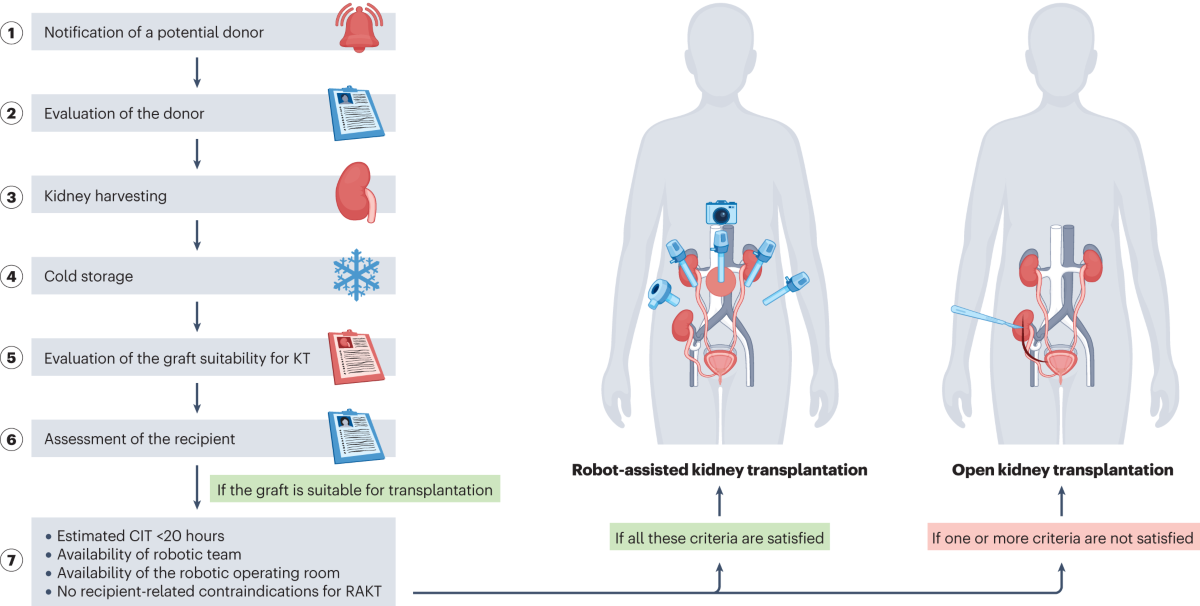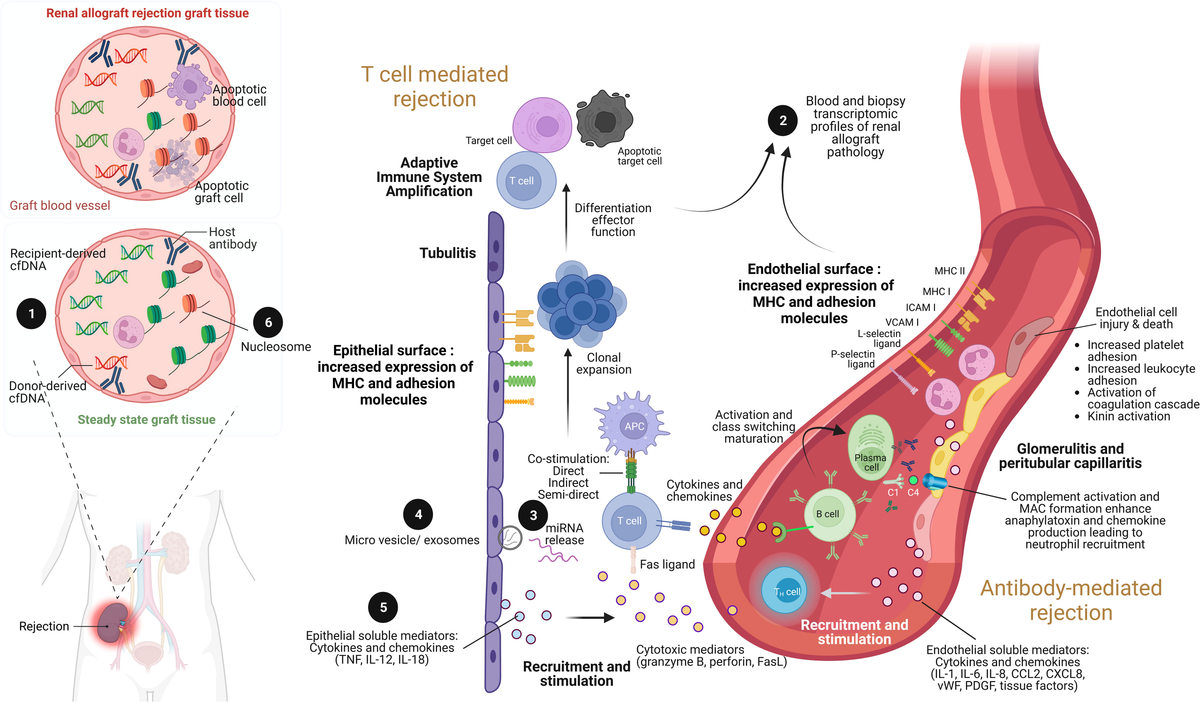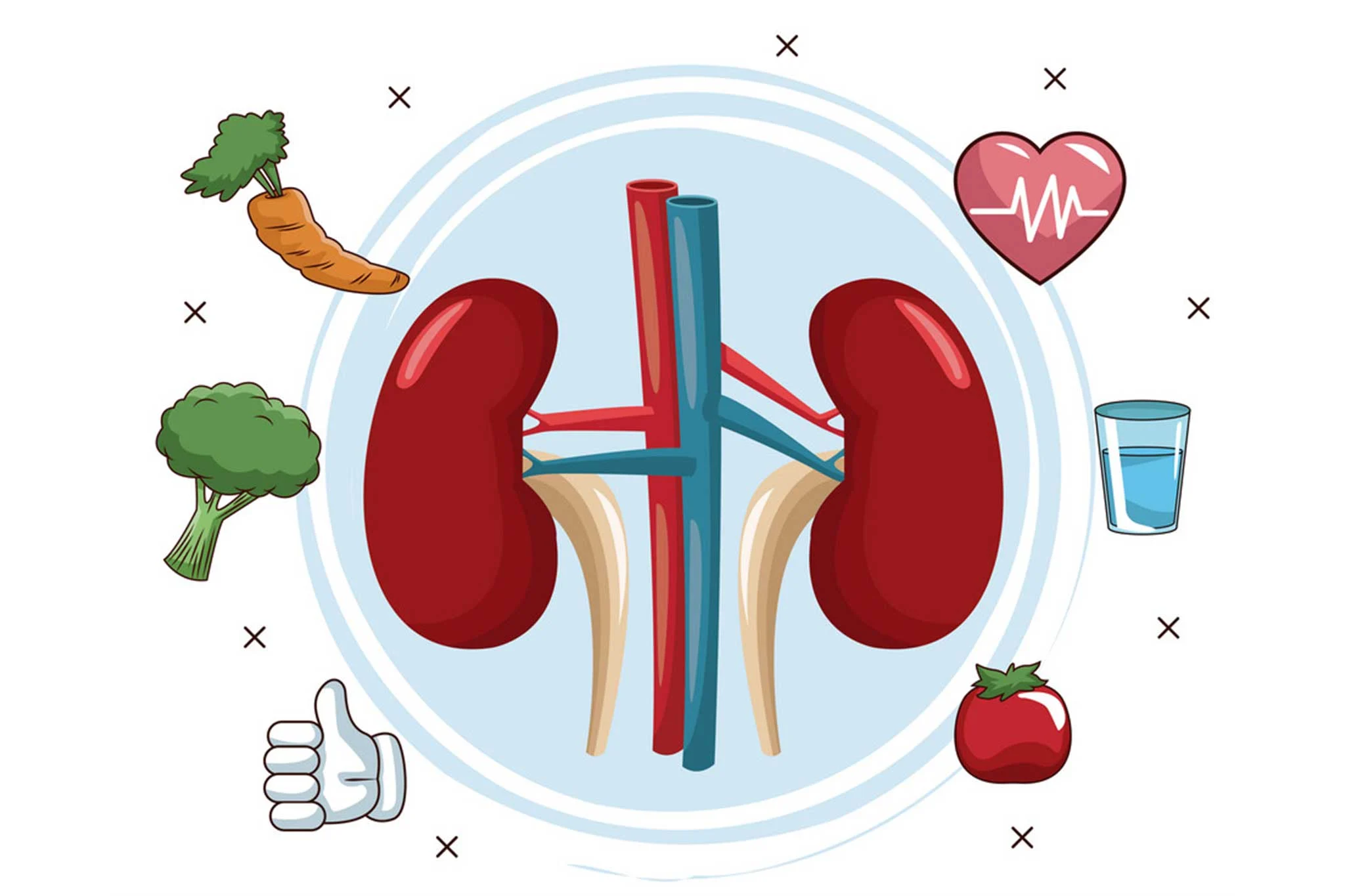What is Kidney Transplant Evaluation
A kidney transplant evaluation is a whole process to determine if you’re a candidate for a kidney transplant.
The evaluation process includes medical, psychosocial and compatibility tests to assess your overall health and suitability for a transplant, including understanding the donor’s kidney. There are different types of kidney donors, living donors and deceased donors. Receiving a donor’s kidney from a living donor can result in shorter wait times and potentially less complications compared to a kidney from a deceased donor. But both has their own implications and longevity considerations.
A successful kidney transplant can be better than dialysis.
To be considered for a kidney transplant you must be evaluated at a transplant center.

Psychosocial Evaluation
A psychosocial evaluation is a big part of the kidney transplant evaluation process. This assessment is done by a transplant social worker to evaluate the patient’s mental and emotional well being and their support system. The goal of this evaluation is to make sure the patient is ready for the challenges of being a transplant recipient and has a stable environment to support their recovery.
During the psychosocial evaluation the transplant social worker will assess:
- Mental health and emotional stability
- Coping mechanisms and stress management techniques
- Support system, family and friends
- Ability to adhere to post-transplant medication and follow up appointments
- Financial stability and access to resources
The transplant social worker will also educate and support the patient and their family members, address any questions or concerns they have about the transplant process. This comprehensive evaluation will make sure the patient is mentally and emotionally ready for the journey and has the necessary support to achieve a successful kidney transplant.
Pre-Transplant Surgery
- To prepare for transplant surgery you will need to have a full health evaluation by a transplant team at a transplant center.
- The evaluation will determine if you’re ready for the kidney transplant.
- You will need to have several health tests and exams at the transplant center, blood tests and cancer screening. The blood test is important to make sure your body won’t reject the donor’s blood. Also these tests are to confirm compatibility with the donor’s kidney, whether it’s from a living or deceased donor.
- The evaluation also requires a mental health evaluation to make sure you’re mentally ready for the transplant.## Medical Tests and Exams
- The specific medical tests will depend on your individual condition.
- Tests will include blood work, imaging studies and other diagnostic tests to assess your kidney function and overall health, blood test is important to ensure compatibility with the donor’s kidney. These tests will determine if the donor’s kidney, whether from a living or deceased donor, is a good match, considering wait times, potential complications and longevity of the kidney.
- You will also need to provide your medical and surgical history to the transplant team.
- A transplant social worker will conduct a one-on-one psychosocial interview to discuss your support system, care and transportation after transplant.
Immunological Evaluation
The immunological evaluation is a big part of the kidney transplant process to ensure the donor kidney is compatible with the recipient’s immune system. This evaluation will minimize the risk of rejection and maximizes the chance of a successful transplant.
The immunological evaluation includes:
- Blood Tests: These tests will determine the recipient’s blood type and tissue type which is important for matching with the donor’s kidney.
- Cross-Matching Tests: These tests will check for compatibility between the donor and recipient, to make sure the recipient’s immune system won’t attack the donor’s kidney.
- Human Leukocyte Antigen (HLA) Typing: This test will identify specific markers on the recipient’s immune cells, to find the best match for the donor’s kidney.
- Panel-Reactive Antibody (PRA) Testing: PRA test will assess the recipient’s immune system response to the donor’s kidney, to know the likelihood of rejection.
The transplant team will use the result of these tests to determine the best course of action for the transplant. In some cases additional testing will be required to ensure compatibility. By evaluating the immunological factors the transplant team can increase the chances of a successful kidney transplant.

Matching
- Before you have a transplant you will need tests to see if the donor’s kidney is a match for your body. These tests are important to ensure the donor’s kidney, whether from a living donor or deceased donor, is compatible with your body to minimize wait times and kidney transplant potential complications.
- The new kidney needs to be very similar to the other organs and tissues in your body to avoid rejection.
- Your immune system will notice the new kidney is different and may attack it, so the transplant team will make sure the new kidney comes from someone with a compatible blood type.
- There are four main blood groups: O, A, B, and AB.
Kidney Transplantation Process
- The kidney transplantation process involves evaluation, matching and surgery to ensure the donor’s kidney is compatible. This includes understanding the implications of receiving a donor’s kidney from a living or deceased donor, considering wait times, potential complications and and renal transplant longevity.
- The transplant team will manage your care before and after transplant.
- If you have a living donor, you can schedule the transplant date.
- If you’re on the waiting list for a deceased donor kidney, you’ll be called when a kidney becomes available.
Living Kidney Donation
- A living kidney donor is an alternative to waiting for a compatible deceased donor’s kidney.
- Family members are often the most likely to be compatible living donors.
- But successful living-donor transplants are also common with kidneys donated from unrelated people, such as friends, co-workers or religious congregation members.
- ABO incompatible kidney transplants are also possible with the help of modern technology.
Legal and Ethical Issues
Kidney transplantation involves several legal and ethical considerations that need to be addressed to ensure a fair and respectful process. These include:
- Informed Consent: The recipient must give informed consent before transplant surgery, fully understanding the risks and benefits.
- Donor Consent: The donor must also give consent to donate, and the recipient must be aware of the donor’s wishes.
- Organ Allocation: The allocation of donor kidneys is governed by strict rules to ensure fairness and equity, prioritizing those in greatest need.
- Confidentiality: The transplant team must maintain confidentiality about the donor’s identity and medical information, protection of their privacy.
- End-of-Life Care: In the event of a failed transplant, the transplant team must address end-of-life care issues with sensitivity and respect.
Adhering to these legal and ethical considerations is important for the transplant team to ensure a successful and respectful transplant process. By following these guidelines, the transplant team can maintain the highest standards of care and integrity.
Nutritional Guidance for Transplant Patients
A healthy diet is crucial for transplant patients to ensure optimal kidney function and overall health. The transplant team will provide nutritional guidance to help patients make informed food choices and live healthy.
The guidance will cover:
- Post-transplant dietary restrictions and recommendations
- Hydration and fluid management
- Healthy eating habits and meal planning
- Foods to avoid that interact with immunosuppressive medication
- Weight management and body mass index (BMI)
The transplant team will also provide resources and support to help patients make sustainable lifestyle changes and a healthy diet. By following these guidelines patients can optimize their recovery and ensure long term success of their kidney transplant.

Post-Transplant
- After a kidney transplant you will need to take medication to prevent your body from rejecting the donor’s kidney.
- You will need to attend follow-up appointments with your doctor to monitor your progress.
- You will need to make lifestyle changes to ensure the success of your transplant, including a healthy diet and exercise.
- You will also need to know the signs of rejection and report any concerns to your transplant team.
Coping and Support
- It’s normal to feel anxious or overwhelmed while waiting for a transplant or worried about the donor’s kidney being rejected, returning to work or other issues after a transplant.
- Seeking support from friends and family can help you cope during this stressful time.
- Your transplant team can also provide other useful resources and coping strategies throughout the transplant process.
Choosing a Transplant Center
- If your doctor recommends a kidney transplant you will be referred to a transplant center.
- You can also choose a transplant center on your own or from your insurance company’s list of providers.
- When you research transplant centers you may want to check the center’s success rates, ask about the center’s experience with kidney transplants and find out about the center’s donor kidney management.

Patient Education and Advocacy
Patient education and advocacy are key parts of the kidney transplant process. The transplant team will educate the recipient about the transplant journey including the risks and benefits and provide ongoing support.
The transplant team should provide the recipient with information on:
- The Transplant Process: What to expect before, during and after transplant.
- Risks and Benefits: Understanding the potential outcomes and complications of the transplant.
- Immunosuppressive Medications: Importance of taking medication to prevent rejection.
- Follow-Up Appointments and Testing: Regular check-ups to monitor the health of the transplanted kidney.
- Healthy Lifestyle: A balanced diet and exercise to support overall health and kidney function.
Additionally the transplant team should offer resources and support to help the recipient navigate the transplant process including:
- Patient Advocacy Groups: Organizations that provide support and information to transplant patients.
- Support Groups: Opportunities to connect with other transplant recipients and share experiences.
- Online Resources and Educational Materials: Information and tools to manage post-transplant care.
- Mental Health Services: Support for emotional and psychological well-being throughout the transplant journey.
By providing thorough education and advocacy the transplant team empowers the recipient to take an active role in their care and ensure a successful transplant.
Technological Advances in Transplantation
Technological advances have made significant improvements to the kidney transplant process with better outcomes and patient care. Some recent advances include:
- Laparoscopic Surgery: Minimally invasive surgery that reduces recovery time and improves outcomes for transplant patients.
- Robotic Surgery: Robotic-assisted surgery offers greater precision and reduces the risk of complications during transplant surgery.
- Immunosuppressive Medications: New medications have improved graft survival and reduced the risk of rejection making transplants more successful.
- Genetic Testing: Advances in genetic testing have improved the matching process and reduced the risk of rejection and improved transplant success.
- Telemedicine: Telemedicine has increased access to care allowing patients to consult with their transplant team remotely and reduce the need for frequent in-person visits.
These technological advances have made the kidney transplant process safer and more effective. As technology continues to evolve the future of kidney transplantation looks bright with ongoing improvements in patient outcomes and quality of life.

Clinical Trials and Research
- Look up transplant centers’ studies of tests and procedures to prevent, detect, treat or manage conditions.
- Clinical trials and research can improve the transplant process and outcomes for patients including studies on the donor kidney.
- You may be eligible to participate in a clinical trial or research study as part of your transplant process.
Conclusion
- A kidney transplant can be a life-changing procedure for people with advanced kidney disease or kidney failure.
- The transplant process involves evaluation, matching and surgery.
- With the right care and support a successful kidney transplant can be better than dialysis.
- Choose a reputable transplant center and follow recommended post-transplant care to ensure success of your transplant.
